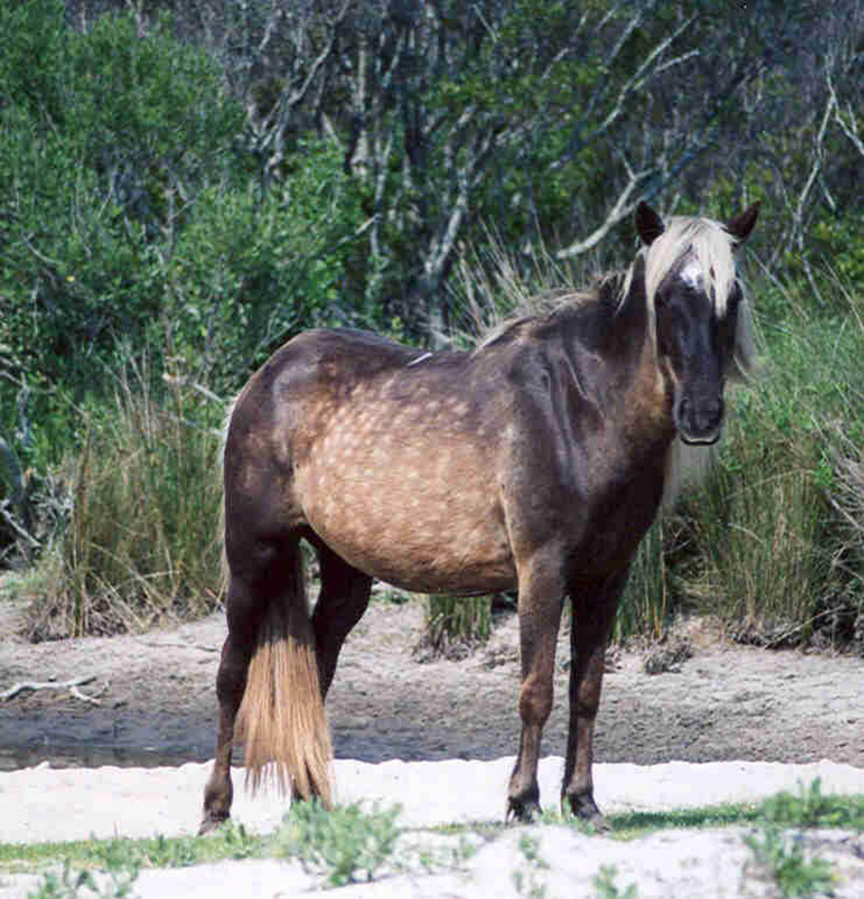RALEIGH, N.C. – A wild horse that roamed North Carolina’s Outer Banks has died, a group that manages her herd says.
The mare, nicknamed Dusty, died at age 25, the Foundation for Shackleford Horses wrote Saturday on Facebook. She was “one of the grand dames of the wild herd” that lives on the Shackleford Banks, which is the southernmost island on Cape Lookout National Seashore.
“The mare we referred to as ‘Dusty’ – for obvious reasons – was easy to spot and identify,” the nonprofit wrote.
Members of the group used to joke every spring: “Wonder what color ‘Dusty’ will be this year?” Carolyn Salter Mason, the foundation’s historian, said, according to the Facebook post.
Dusty was the daughter of Dionysus, who the group says was arguably “one of the most prepotent and dominant stallions on the island in his time.”
“Rest well, run free, old girl,” the group said upon Dusty’s death.
More than 100 wild horses live on Shackleford Banks, according to the National Park Service, which co-manages the herd with the foundation.
“Records show horses living on the Outer Banks for centuries,” the NPS says. “Genetic research shows evidence of Spanish ancestry in the Shackleford herd.”
The Shackleford Banks are one of the few places in the eastern United States where wild horses still live, according to the park service.
“Shackleford Banks is approximately nine miles long and averages less than a mile wide,” the NPS says. “It contains many habitats, unique to barrier islands, which support the horses.”
The wild herd that lives on Shackleford is “related to the other equine inhabitants that live along the barrier islands of the Eastern United States,” the Foundation for Shackleford Horses says.
Seeing the horses, which are “of great interest to the scientific community as well as to the average citizen,” in their natural habitat is a “rare privilege” the group says.
“We encourage you to appreciate the horses’ beauty and watch their fascinating social behaviors, but ask that you respectfully stay far enough away to avoid disturbing the horses or endangering yourself or your pets,” the foundation advises visitors.
The group’s Facebook post was flooded with comments about Dusty’s death.
“Rest free, Dusty. There’s nothing quite like a grand old Banker mare,” the Corolla Wild Horse Fund, which manages the wild horses of the Currituck Outer Banks, commented. “We’ve known a few too. Smart, classy, and stronger than anyone would ever imagine.”



